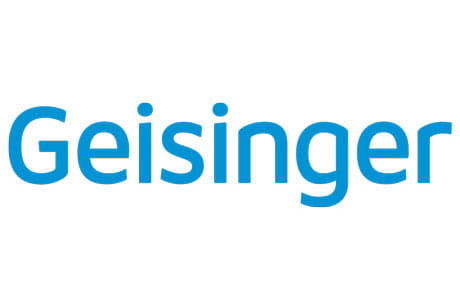Geisinger researchers find AI can predict arrhythmia, death risk
Analysis of ECG results can pinpoint patients at higher risk for earlier interventions
In two studies, researchers used more than 2 million ECG test results from archived medical records within the Geisinger system to train deep neural networks — advanced, multi-layered computational structures — to predict irregular heart rhythms, known as atrial fibrillation (AF), before they developed. Atrial fibrillation is associated with an increased risk of heart attack and stroke. The studies are among the first to use artificial intelligence to predict future events from an ECG rather than to detect current health problems.
“This is exciting and provides more evidence that we are on the verge of a revolution in medicine where computers will be working alongside physicians to improve patient care,” said Brandon Fornwalt, M.D., Ph.D., co-senior author on both studies and associate professor and chair of the Department of Imaging Science and Innovation at Geisinger.
In 1.1 million ECGs from more than 237,000 patients who had not yet developed AF, the research team used highly specialized computational hardware to train a deep neural network to analyze 15 segments of data — 30,000 data points — for each ECG. Researchers found that within the top 1 percent of high-risk patients, as predicted by the neural network, 1 out of every 3 people was diagnosed with AF within a year. The model predictions also demonstrated longer term prognostic significance, as the patients predicted to develop AF had a 45 percent higher hazard rate in developing AF over the next 25 years of follow-up compared to the lower risk patients.
“Currently, there are limited methods to identify which patients will develop AF within the next year, which is why, many times, the first sign of AF is a stroke,” said senior author Christopher Haggerty, Ph.D., assistant professor in the Department of Imaging Science and Innovation at Geisinger and co-senior author on both studies. “We hope that this model can be used to identify patients with atrial fibrillation very early so they can be treated to prevent stroke.”
To identify patients most likely to die of any cause within a year, Geisinger researchers analyzed the results of 1.77 million ECGs and other records from almost 400,000 patients. The team used this data to compare machine learning-based models that either directly analyzed the raw ECG signals or relied on aggregated human-derived measures (standard ECG features typically recorded by a cardiologist) and commonly diagnosed disease patterns.
The neural network model that directly analyzed the ECG signals was found to be superior for predicting 1-year risk of death. Surprisingly, the neural network was able to accurately predict risk of death even in patients deemed by a physician to have a normal ECG. Three cardiologists separately reviewed the ECGs that had first been read as normal, and they were generally unable to recognize the risk patterns that the neural network detected, researchers said.
“This is the most important finding of this study,” said Fornwalt, who co-directs Geisinger’s Cardiac Imaging Technology Lab with Haggerty. “This could completely alter the way we interpret ECGs in the future.”
The research was supported in part by funding from the Pennsylvania Department of Health, an American Heart Association Competitive Catalyst Award and the Geisinger Health Plan and Clinic.
About Geisinger
Geisinger is among the nation’s leading providers of value-based care, serving 1.2 million people in urban and rural communities across Pennsylvania. Founded in 1915 by philanthropist Abigail Geisinger, the non-profit system generates $10 billion in annual revenues across 134 care sites - including 10 hospital campuses, and Geisinger Health Plan, with 600,000 members in commercial and government plans. The Geisinger College of Health Sciences educates more than 5,000 medical professionals annually and conducts more than 1,400 clinical research studies. With 26,000 employees, including 1,600 employed physicians, Geisinger is among Pennsylvania’s largest employers with an estimated economic impact of $14 billion to the state’s economy. On March 31, 2024, Geisinger became the first member of Risant Health, a new nonprofit charitable organization created to expand and accelerate value-based care across the country. Learn more at geisinger.org or connect with us on Facebook, Instagram, LinkedIn and X.

For media inquiries:
Ashley Andyshak Hayes
Marketing Strategist
Marketing & Communications
570-271-8081
arandyshakhayes@geisinger.edu
